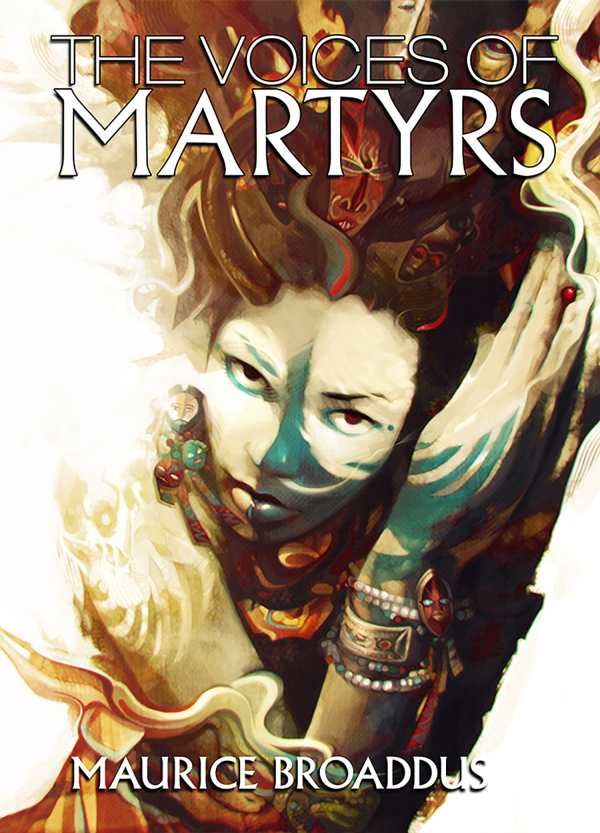The Voices of Martyrs
Broaddus’s stories are a roller-coaster of imaginativeness, both speculative and unique.
A fertile imagination, combined with elements of the black experience, makes Maurice Broaddus’s story collection The Voices of Martyrs a memorable one.
Broaddus, a writer whose work has appeared in publications from Asimov’s Science Fiction to Apex Magazine, brings a less-heard perspective to speculative fiction, infusing his stories with African words and concepts, Jamaican obeah (Cabibbean folk magic), and other rich cultural sources.
The Voices of Martyrs is separated into three sections, “Past,” “Present,” and “Futures”; the first includes settings such as a 1651 slave ship and 1895 Indiana, amid a period of high racial tension. Much of Broaddus’s writing skirts the boundaries of genres—science fiction, speculative fiction, fantasy, and horror—and some stories, like “Pimp My Airship,” combine so many disparate elements—steampunk and alternate history, mixed with social commentary and music references—that they can’t but stand out as unique.
“The Volunteer” is a collection highlight. It is the story of a church volunteer who meets a group of vampires. Here, the details and social significance of clothing play a central role, as does the importance of a sense of belonging, as illuminated when the protagonist speaks with the female vampire who leads the group:
For him, family meant more people to eat the things he bought and put in the refrigerator. And more people to turn the heat up too high in the house. And more people to argue about what to watch on television. Which she agreed with, but made it sound like those were exactly the things to be treasured.
Broaddus’s text doesn’t always flow perfectly, but the voices of his characters—martyrs or otherwise—are both the main focus and the strength of the collection. Most refreshing is that nowhere in The Voices of Martyrs does Broaddus present a stereotype or predictable trope; there’s a clear sense that he’s having fun writing what he wants to, and that readers are just hitching a ride on the roller-coaster of his imagination until the ride stops, or they fall off.
Reviewed by
Peter Dabbene
Disclosure: This article is not an endorsement, but a review. The publisher of this book provided free copies of the book to have their book reviewed by a professional reviewer. No fee was paid by the publisher for this review. Foreword Reviews only recommends books that we love. Foreword Magazine, Inc. is disclosing this in accordance with the Federal Trade Commission’s 16 CFR, Part 255.

